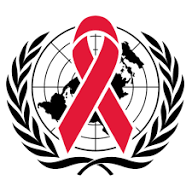Nigeria Records 55% Decline in Condom Distribution – UNAIDS
The Joint United Nations Programme on HIV/AIDS says condom distribution in Nigeria fell by 55 per cent over the past year.
Launching its 2025 World AIDS Day report, Overcoming Disruption, Transforming the AIDS Response, on Tuesday, UNAIDS warned that the global HIV response is facing its worst setback in decades.
“Nigeria recorded a 55 per cent drop in condom distribution,” UNAIDS said.
The agency reported widespread disruption to HIV prevention, testing and community-led programmes, adding that across 13 countries, the number of people newly initiated on treatment has fallen.
According to UNAIDS, 450,000 women in sub-Saharan Africa have lost access to “mother mentors,” trusted community workers who link them to care.
The UN agency said abrupt funding cuts and a deteriorating human rights environment are disrupting prevention and treatment services across dozens of countries.
“The funding crisis has exposed the fragility of the progress we fought so hard to achieve,” Winnie Byanyima, Executive Director of UNAIDS, said in Geneva on Tuesday.
“Behind every data point in this report are people,” Byanyima said.
“Babies missed for HIV screening, young women cut off from prevention support, and communities suddenly left without services and care. We cannot abandon them,” she added.
UNAIDS said that before the crisis, adolescent girls and young women were already severely affected, with 570 new HIV infections occurring every day among young women aged 15 to 24.
“This is our moment to choose,” Byanyima said.
“We can allow these shocks to undo decades of hard-won gains, or we can unite behind the shared vision of ending AIDS.
“Millions of lives depend on the choices we make today.”
The agency warned that dismantled prevention programmes leave young women even more vulnerable. It added that community-led organisations, described as the backbone of HIV outreach, are also under pressure.
It said more than 60 per cent of women-led organisations report they have had to suspend essential services.
UNAIDS modelling suggests that failure to restore prevention efforts could lead to an additional 3.3 million new HIV infections between 2025 and 2030.
The UN agency said international assistance has sharply declined, with OECD projections showing that external health funding could fall by 30 to 40 per cent in 2025 compared with 2023.
“The impact has been immediate and severe, especially in low- and middle-income countries highly affected by HIV.”
UNAIDS urged world leaders to reaffirm global solidarity and multilateralism, including commitments made at the recent G20 Leaders’ Summit in South Africa.
The agency also urged world leaders to maintain and increase HIV funding, especially for countries most dependent on external assistance.
It called for investment in innovation, including affordable long-acting prevention, and for upholding human rights and empowering communities, which it said remain central to successful HIV responses.
(NAN)






